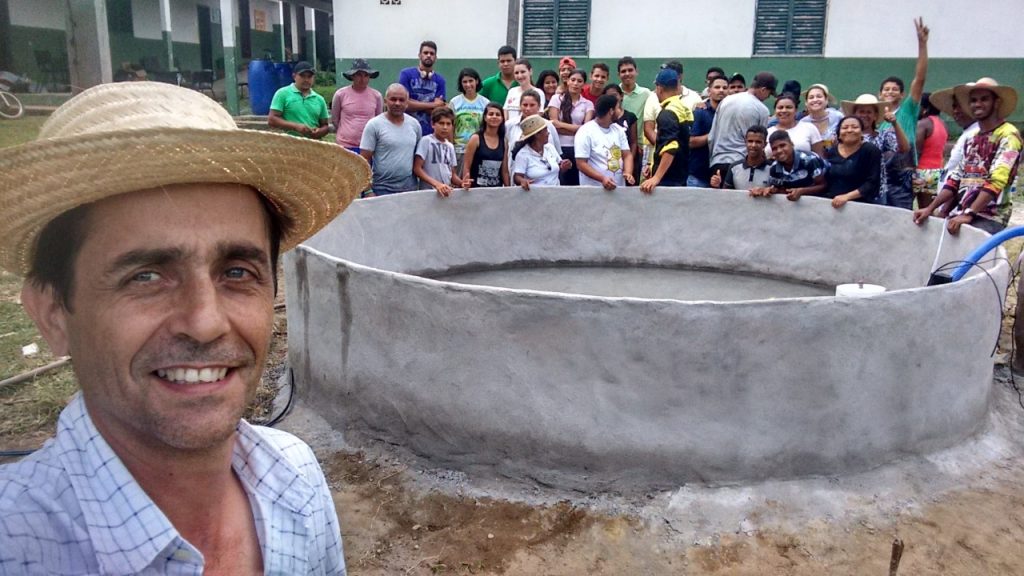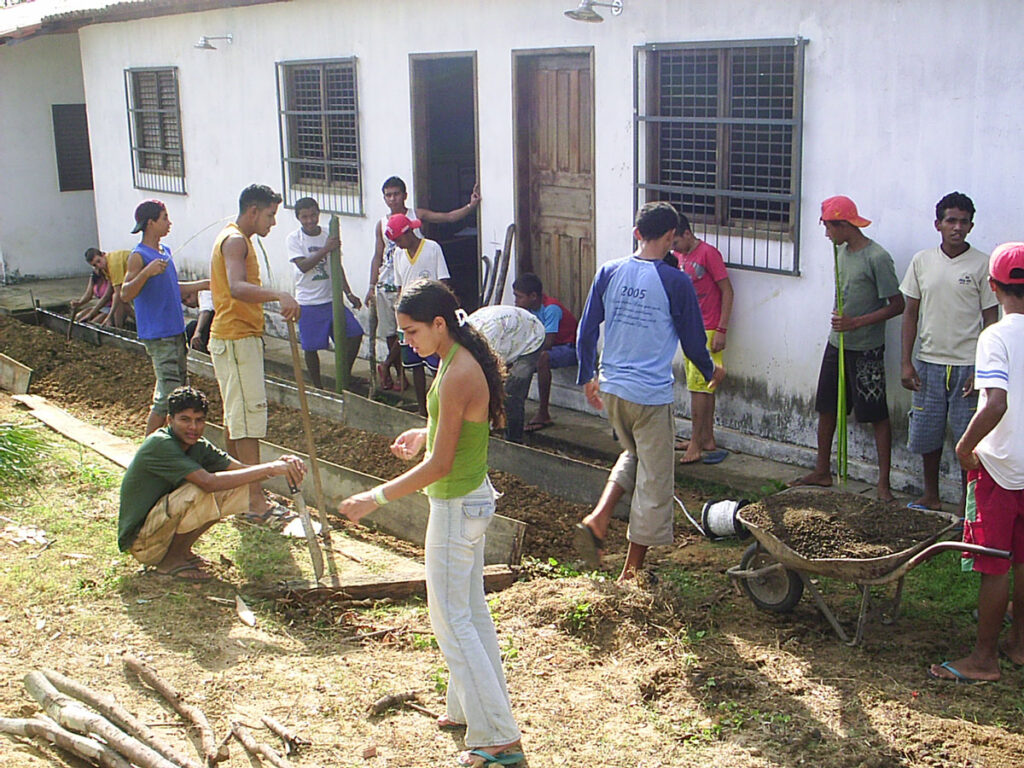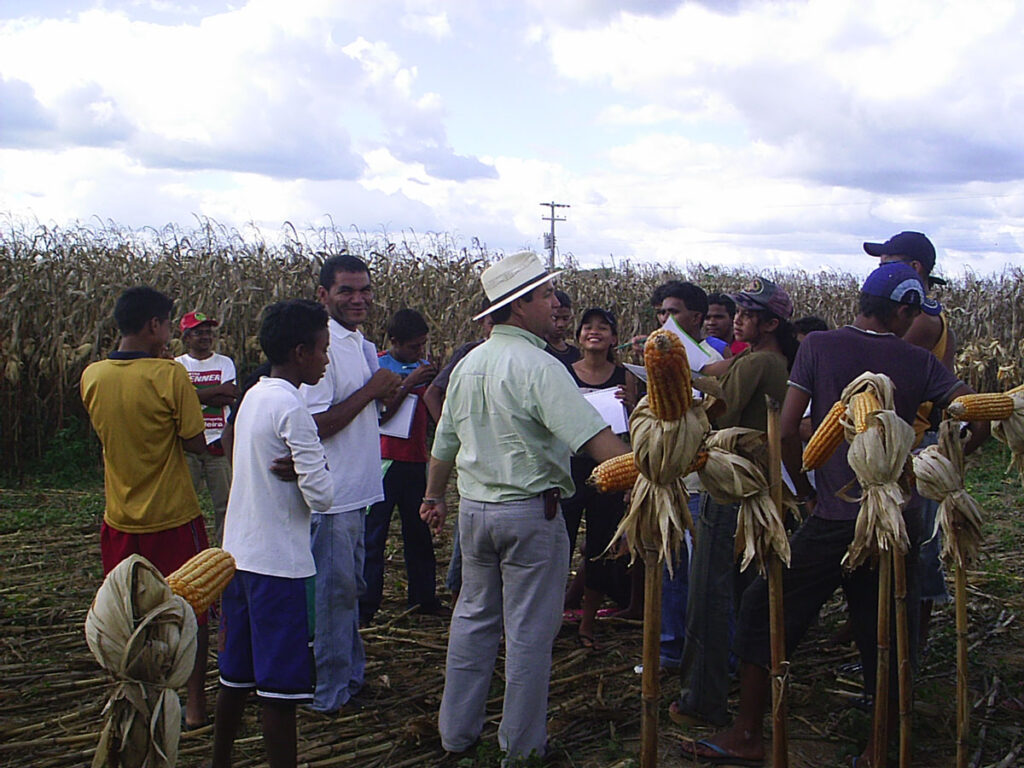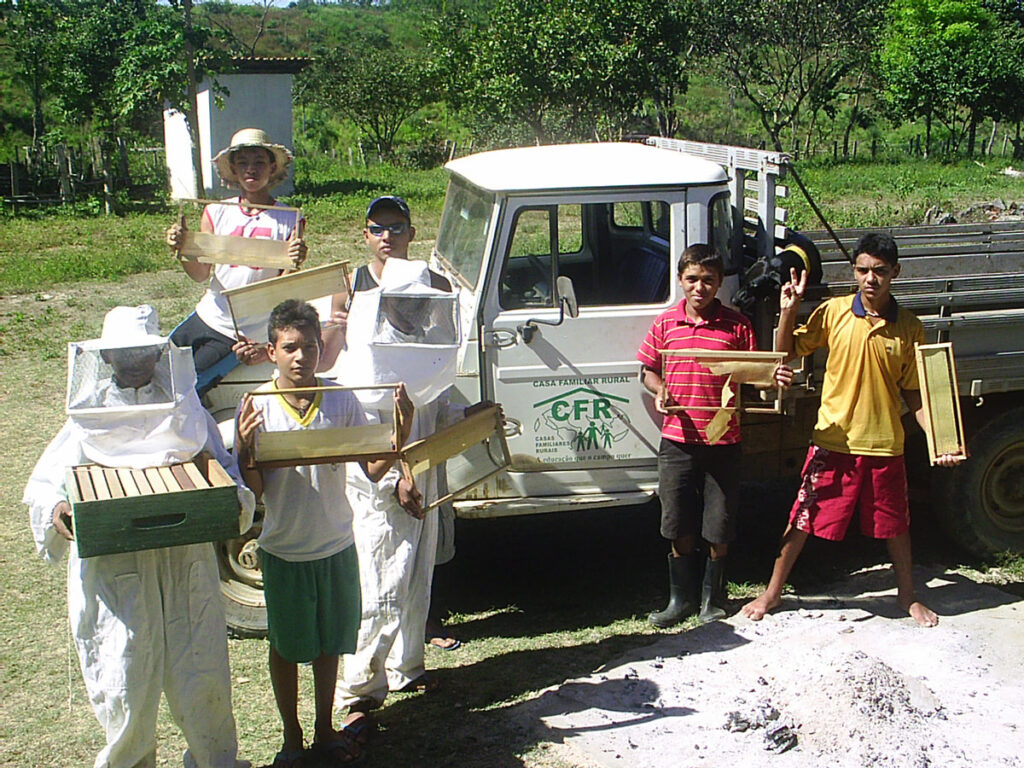By Zé Luís Costa. From the MST website. (Edited by Fernanda Alcântara)

The Rural Family House [Casa Familiar Rural (CFR)] of Açailândia, in the state of Maranhão, was constituted as an association in 2001 after a small group of social activists met and began to discuss ways to improve the issue of rural education for the local reality.
From the beginning, the entities that started the proposal of the family house entered the debate of this political and social project, such as the MST, which had just settled in the city, the institute of the Comboni Missionaries, the Center for the Defense of Life and Human Rights and the Union of Workers and Rural Workers of the city.
The experience of this type of school is already old in the world and in the state of Maranhão they are present in several different cities. In other parts of the world this type of school is known as “Family Agricultural School”.
From the first discussions, the interested organizations held several meetings, even in cities on the outskirts, as Xoan Carlos (CLM) reminds us. “We held a series of meetings in the communities. There were another 60 meetings in the municipalities of Açailândia, São Francisco do Brejão, Itinga, Bom Jesus das Selvas. And finally the association was formed”.
He continues: “From there we obtained a piece of land, given by the Catholic Church. But we could not afford to build the building or pay the employees. So it was a few more years of struggle and articulation in the search for projects, and where we got some international support”.

Later, in 2003, the organizations involved in the idea managed to start what they dreamed of for the city and its surroundings, in view of the large number of settlements and rural communities they had in the vicinity of the city, now with 110,000 inhabitants. It was a dream for the distant future.
The pioneers of the idea achieved, with much struggle, agreements with the city council, as Xoan Carlos states. “In 2005 we started the first activities of the CFR. We started with an elementary school course, we had managed to structure several productive units in agriculture, beekeeping, cattle raising, pigs… Governor Jackson Lago had the intention of doing a high school course integrated to professional education, and a new moment started for the CFR”, he concludes.
With these articulations, in 2006 the high school course started, which was better adapted to the needs of the youth in the countryside. Mainly because, in 2001, many communities only had young people with the fourth grade at most. This was the need they have: a school with different characteristics from the conventional ones, for the countryside.
Jarbe Firmino was a student in the first class of the Açailândia Rural Family House, and later entered the Federal University of Maranhão (UFMA). He graduated in Education in countryside and returned to CFR, now as a monitor/teacher, and then took a position in the institution as general coordinator.
He tells about his experience criticizing the position of the public power: “This experience, to which I refer, of coordinator, as well as in other moments, was of great difficulty in terms of support from the public power. These were periods in which contracts were not honored by the State, which weakened the movement of which the CFR is a part,” he concludes.
After all this struggle, came the recognition and the conquests. The main one was the training of young people as agricultural technicians to work in the settlements with their families and in some state agencies. The Regional Council of Engineering and Agronomy, CREA, recognized them so that they could work officially providing technical assistance to the projects.
However, the desire of the coordination and the group that organizes the association and the CFR is that the students, trained, work with their families developing what they have learned, in family farms, as most of the settlements of the agrarian reform.

The CFR is managed by an association, and the president is currently Xoan Carlos. The coordination is chosen by the association and has ten teachers who are hired by the Maranhão State Education Secretariat.
History of the rural family houses
The Rural Family Houses originated in France in 1935, in a situation of strong rural exodus, when a group of families, with the support of the Catholic Church, met to rethink this situation. They called it “House” to differentiate it from the conventional school and because it began in the home of a family; “Family” because it was an organization of families and not of the government; and “Rural” because the object of the experience was in the rural environment as a whole: technical, human, cultural, etc.
Today, in France, there are 450 CFRs. Since the 1960s, the experience has spread to Spain and Italy under the name “Family Farm School”. There are about 1,000 CFRs in the five continents, in thirty countries.
In Brazil, the CFRs began to appear at the end of the 1960s, and today there are about 150 rural educational centers that operate with the “Pedagogy of Alternance”. In Maranhão there are approximately 27 schools with these formative principles. The pedagogy of alternation developed within the methods of Paulo Freire, in a construction of technical training, is united with training for life, in the case of Açailândia, expanded with the commitment to the struggles for a differentiated model of agriculture.




